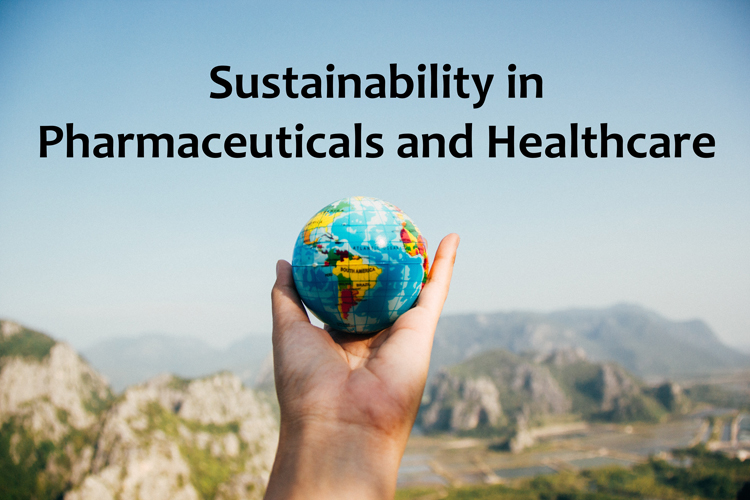Sustainability in Pharmaceuticals and Healthcare sectors
Sustainability in Pharmaceuticals and healthcare sectors is currently one of the most important topics to be worked upon. The need to achieve sustainable development goals (SDGs) is rising in every possible industry. Apart from focusing on economic profitability and increased sales the pharmaceutical and healthcare units are required to extend their work on providing quality medicines and healthcare facilities to a vast range of possible population.
Definition of Sustainable Development
The widely accepted definition of sustainable development is quoted from ‘Our Common Future‘ also known as Brundtland report as “Sustainable development is development that meets the needs of the present without compromising the ability of future generations to meet their own needs”.
How can Sustainability be achieved in pharmaceuticals and healthcare sectors ?
The major criteria to attain sustainable development is that there should be substantial development in the social, economical and environmental areas.
Social Development
Right to health is a right of every individual, regardless of region, gender or economic stability. The UN Committee on economic, social and cultural rights has laid a good baseline to understand the role of social responsibilities for pharmaceutical or healthcare industry. Some of them are listed below:
- Increasing access of medical facilities in the required fields can be done by investing into programs like corporate social responsibility (CSR)
- Collaborating through networks
- Creating successful charitable programs.
The implications of programs with social importance leads to increased brand reputation, positive public perception and creates a sense of motivation and cultural pride among the work force.
Case study
Astellas Pharma Europe, in 2014 provided a grant to the Fistula Foundation to develop a programme called ‘Action on Fistula’, this corporate programme aimed at transforming the lives of more than 1200 women in Kenya suffering with obstetric Fistula. The condition is caused by prolonged labour and leads to faecal or urinary incontinence or both. By 2020 ‘Action on Fistula’ wants to help more than 4500 women to access appropriate treatment for Fistula.
Economic and Environmental stability
To meet sustainable development goals it is also important to meet the standards of economic and environmental issues. The economic growth can be enhanced with an innovative approach towards business that focuses on information, transparency and knowledge. Advent of technology and employing sophisticated measures into manufacturing processes saves time and provide accuracy.
Furthermore, it is important to wisely plan and execute the whole process, to cut off unwanted usage of resources. Replace conventional methods which require high operational energy with more environment friendly automated methods. Energy efficiency improvements to use of cross cutting technology, such as the use of energy efficient motors and the optimization of compressed air systems, are well documented opportunities for energy savings. In addition, production processes can be fine tuned to produce similar savings.
Sustainable Development Goal 3 (SDG 3)
Out of 17 Sustainable Development Goals, the third goal aims to ‘Ensure healthy lives and promote wellbieng for all, at all stages’. There are a number of sub goals defined to meet the SDG 3 and they are as listed below
- By 2030, reduce the global maternal mortality ratio to less than 70 per 100 000 live births.
- By 2030, end preventable deaths of newborns and children under 5 years of age
- By 2030, end the epidemics of AIDS, tuberculosis, malaria and other communicable diseases
- By 2030, reduce by one third premature mortality from non-communicable diseases through prevention and treatment and promote mental health and well-being.
- Strengthen the prevention and treatment of substance abuse, including narcotic drug abuse and harmful use of alcohol.
- By 2020, halve the number of global deaths and injuries from road traffic accidents.
- By 2030, ensure universal access to sexual and reproductive health-care services, including for family planning, information and education, and the integration of reproductive health into national strategies and programmes.
- Achieve universal health coverage, including financial risk protection, access to quality essential health-care services and access to safe, effective, quality and affordable essential medicines and vaccines for all.
- By 2030, substantially reduce the number of deaths and illnesses from hazardous chemicals and air, water and soil pollution and contamination.
Quick pointers to work on sustainability
- Reducing the harmful bi-products to their less harmful or biodegradable forms.
- Treat the waste products efficiently to match the standard limits set by the pollution control board.
- Incorporate Artificial Intelligence and automation to avoid multiple test trials and nanoparticles for effective drug delivery.
Conclusion
According to a report by the WHO, more than 2 billion people across the globe still do not have access to essential medicines , there are several programs hosted by WHO and the United Nations along with pharmaceutical giants to overcome this gap. To achieve sustainability in pharmaceutical and healthcare sectors, it is also highly important to conserve energy without compromising on the quality or quantity of product. The combined efforts from the respective governments, non government organisations and pharmaceutical firms towards sustainability may result in fruitful outcomes to achieve sustainable development goals in the areas of medical and healthcare.

[…] believe more in conserving environment and sustainable development, then you may also enjoy ‘sustainable health care‘. An article which briefs about the importance of achieving sustainability in healthcare […]
[…] are a list of few more interesting topics like ‘sustainability in healthcare industries‘ and […]
[…] is a list of few more interesting topics like ‘sustainability in healthcare industries‘ and […]